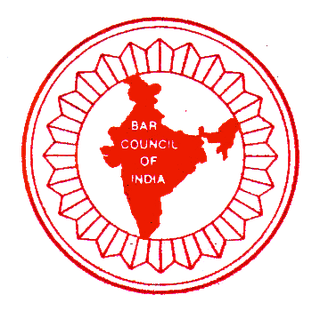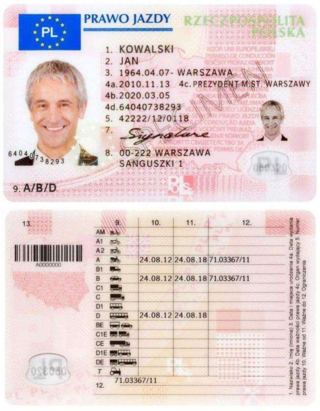Legal benefit is a legal term that means the obtaining by the promisor of that which he had no prior legal right to obtain.
Legal benefit is a legal term that means the obtaining by the promisor of that which he had no prior legal right to obtain.

An injunction is an equitable remedy in the form of a special court order that compels a party to do or refrain from specific acts. "When a court employs the extraordinary remedy of injunction, it directs the conduct of a party, and does so with the backing of its full coercive powers." A party that fails to comply with an injunction faces criminal or civil penalties, including possible monetary sanctions and even imprisonment. They can also be charged with contempt of court.
A search warrant is a court order that a magistrate or judge issues to authorize law enforcement officers to conduct a search of a person, location, or vehicle for evidence of a crime and to confiscate any evidence they find. In most countries, a search warrant cannot be issued in aid of civil process.
Consent occurs when one person voluntarily agrees to the proposal or desires of another. It is a term of common speech, with specific definitions as used in such fields as the law, medicine, research, and sexual relationships. Consent as understood in specific contexts may differ from its everyday meaning. For example, a person with a mental disorder, a low mental age, or under the legal age of sexual consent may willingly engage in a sexual act that still fails to meet the legal threshold for consent as defined by applicable law.
In law, a minor is someone under a certain age, usually the age of majority, which demarcates an underage individual from legal adulthood. The age of majority depends upon jurisdiction and application, but it is commonly 18. Minor may also be used in contexts that are unconnected to the overall age of majority. For example, the smoking and drinking age in the United States is 21, and younger people below this age are sometimes called minors in the context of tobacco and alcohol law, even if they are at least 18. The terms underage or minor often refer to those under the age of majority, but may also refer to a person under other legal age limits, such as the age of consent, marriageable age, driving age, voting age, etc. Such age limits are often different from the age of majority.
Bachelor of Laws is an undergraduate law degree in the United Kingdom and most common law jurisdictions. It is awarded by universities in Australia, the People's Republic of China, Hong Kong S.A.R., Macau S.A.R., Malaysia, Bangladesh, India, Japan, Pakistan, Uganda, Kenya, Ghana, New Zealand, Nigeria, Singapore, South Africa, Botswana, Israel, Brazil, Tanzania, Zambia, and other jurisdictions.
A marriage license is a document issued, either by a religious organization or state authority, authorizing a couple to marry. The procedure for obtaining a license varies between jurisdictions, and has changed over time. Marriage licenses began to be issued in the Middle Ages, to permit a marriage which would otherwise be illegal.
A law degree is an academic degree conferred for studies in law. Such degrees are generally preparation for legal careers. But while their curricula may be reviewed by legal authority, they do not confer a license themselves. A legal license is granted by examination, and exercised locally. The law degree can have local, international, and world-wide aspects, such as in England and Wales, where the Legal Practice Course or passing Solicitors Qualifying Examination (SQE) is required to become a solicitor or the Bar Professional Training Course (BPTC) to become a barrister.

A sole proprietorship, also known as a sole tradership, individual entrepreneurship or proprietorship, is a type of enterprise owned and run by one person and in which there is no legal distinction between the owner and the business entity. A sole trader does not necessarily work alone and may employ other people.
A foundation is a category of nonprofit organization or charitable trust that typically provides funding and support for other charitable organizations through grants, but may also engage directly in charitable activities. Foundations include public charitable foundations, such as community foundations, and private foundations, which are typically endowed by an individual or family. However, the term "foundation" may also be used by such organizations that are not involved in public grantmaking.
A memorandum of understanding (MoU) is a type of agreement between two (bilateral) or more (multilateral) parties. It expresses a convergence of will between the parties, indicating an intended common line of action. It is often used either in cases where parties do not imply a legal commitment or in situations where the parties cannot create a legally enforceable agreement. It is a more formal alternative to a gentlemen's agreement.

In common law jurisdictions probate is the judicial process whereby a will is "proved" in a court of law and accepted as a valid public document that is the true last testament of the deceased, or whereby the estate is settled according to the laws of intestacy in the state of residence of the deceased at time of death in the absence of a legal will.
The Bar of Quebec is the regulatory body for the practice of advocates in the Canadian province of Quebec and one of two legal regulatory bodies in the province. It was founded on May 30, 1849, as the Bar of Lower Canada.
A legal case is in a general sense a dispute between opposing parties which may be resolved by a court, or by some equivalent legal process. A legal case is typically based on either civil or criminal law. In most legal cases, there are one or more accusers and one or more defendants. In some instances, a legal case may occur between parties that are not in opposition, but require a legal ruling to formally establish some legal fact, such as a divorce.

A law school is an institution or professional school specializing in legal education, usually involved as part of a process for becoming a judge, lawyer, or other legal professional within a given jurisdiction.
An admission to practice law is acquired when a lawyer receives a license to practice law. In jurisdictions with two types of lawyer, as with barristers and solicitors, barristers must gain admission to the bar whereas for solicitors there are distinct practising certificates.

Bar Council of India (BCI) is a statutory body established under the section 4 of Advocates Act 1961 that regulates the legal practice and legal education in India. Its members are elected from amongst the lawyers in India and as such represents the Indian bar. It prescribes standards of professional conduct, etiquettes and exercises disciplinary jurisdiction over the bar. It also sets standards for legal education and grants recognition to universities whose degree in law will serve as a qualification for students to enroll themselves as advocates upon graduation.
The Legal Entity Identifier (LEI) is a unique global identifier for legal entities participating in financial transactions. Also known as an LEI code or LEI number, its purpose is to help identify legal entities on a globally accessible database. Legal entities are organisations such as companies or government entities that participate in financial transactions. An individual person may not obtain an LEI. The identifier is used in regulatory reporting to financial regulators and all financial companies and funds are required to have an LEI.

A driver's license or driving permit is a legal authorization, or the official document confirming such an authorization, for a specific individual to operate one or more types of motorized vehicles—such as motorcycles, cars, trucks, or buses—on a public road. Such licenses are often plastic and the size of a credit card.

Venezuelan nationality law is the law governing the acquisition, transmission and loss of Venezuelan citizenship. It is based on the principle of jus soli: any person born in Venezuela acquires Venezuelan citizenship at birth, irrespective of nationality or status of parents. Venezuelan nationality law is regulated by Section 1 of Chapter 2 of the Constitution of Venezuela and by the Nationality and Citizenship Act of 2004.
The Financial Monitoring Service of Azerbaijan is a public legal entity whose role is policy coordination, overall regulation, and supervision in the sphere of anti-money laundering and counter-terrorism financing in the country of Azerbaijan. According to its website, the Financial Monitoring Service was established by the Decree No. 66 of the President of the Republic of Azerbaijan, dated 23 February 2009. The Financial Monitoring Service is the authority that implements the powers identified by the legislation on the prevention of illegally obtained funds and other property's use in the financing of terrorism in accordance with international standard.